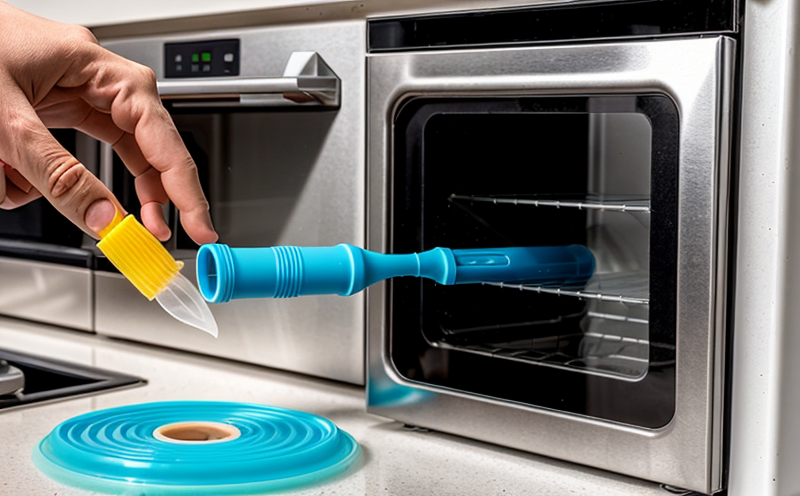ASTM D2990 Creep Behavior Testing of Household Plastics
The ASTM D2990 standard specifies procedures for determining the creep behavior of thermoplastic materials under constant load. This testing is crucial in assessing the long-term performance and stability of household plastics, ensuring that products meet durability requirements without deforming over time.
Creep resistance is essential for household items such as containers, utensils, and furniture components made from polyethylene, polystyrene, or other thermoplastics. ASTM D2990 helps manufacturers ensure their products will maintain shape and integrity under typical use conditions, thereby enhancing product reliability and customer satisfaction.
Testing involves subjecting specimens to a specific load at a constant temperature until measurable deformation occurs. The creep strain is then measured over time. This data provides insights into the material's behavior under sustained stress, which is critical for designing products that can withstand everyday conditions without compromising safety or functionality.
The testing process typically follows these steps: specimen preparation, conditioning, load application, and observation of deformation. Specimens are cut to standard dimensions and conditioned according to the specified temperature and humidity conditions before testing begins. Load is applied gradually to simulate real-world use scenarios, and deformation is monitored using precision measurement instruments.
ASTM D2990 creep behavior testing ensures that household plastics comply with regulatory standards and meet customer expectations for durability and longevity. This service plays a vital role in the quality assurance processes of manufacturing companies, providing them with critical data to improve product design and performance.
Applied Standards
| Standard | Description |
|---|---|
| ASTM D2990-18 | This standard specifies the procedure for determining the creep properties of thermoplastic materials under constant load. It provides clear guidelines on specimen preparation, test conditions, and data analysis. |
| ISO 527-3:2010 | This international standard covers tensile testing at elevated temperatures for thermoplastic materials. While not specific to creep behavior, it complements ASTM D2990 by providing additional insights into material performance under heat. |
The ASTM D2990 test method is widely recognized and used across the polymer industry for its rigorous approach to evaluating creep behavior. Compliance with this standard ensures that products are robust and reliable, meeting both internal quality control requirements and external regulatory expectations.
Customer Impact and Satisfaction
- Improved product durability leading to reduced warranty claims
- Increased customer trust in the brand's commitment to quality
- Enhanced reputation for reliability, which can attract more customers
- Cost savings through extended product life and fewer replacements
Environmental and Sustainability Contributions
ASTM D2990 creep behavior testing supports sustainable practices by ensuring that household plastics are designed to last longer, reducing waste and the need for frequent replacement. By identifying materials with excellent creep resistance early in the product development process, manufacturers can reduce environmental impact and contribute positively to sustainability goals.
The test results also help companies comply with environmental regulations, thereby promoting responsible manufacturing practices that minimize resource consumption and waste generation. This aligns with broader industry efforts toward eco-friendly production methods and sustainable product design.





